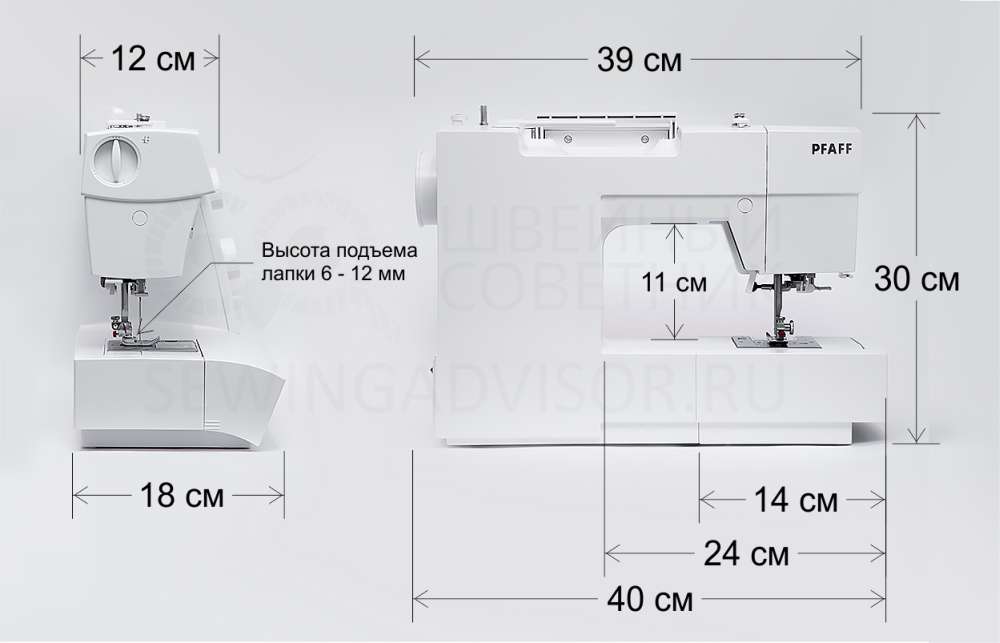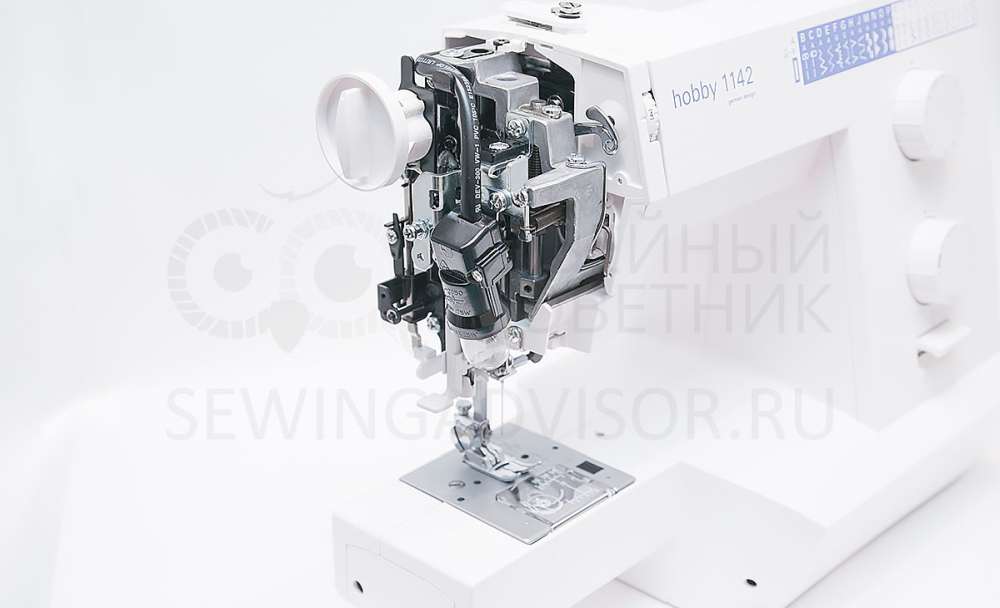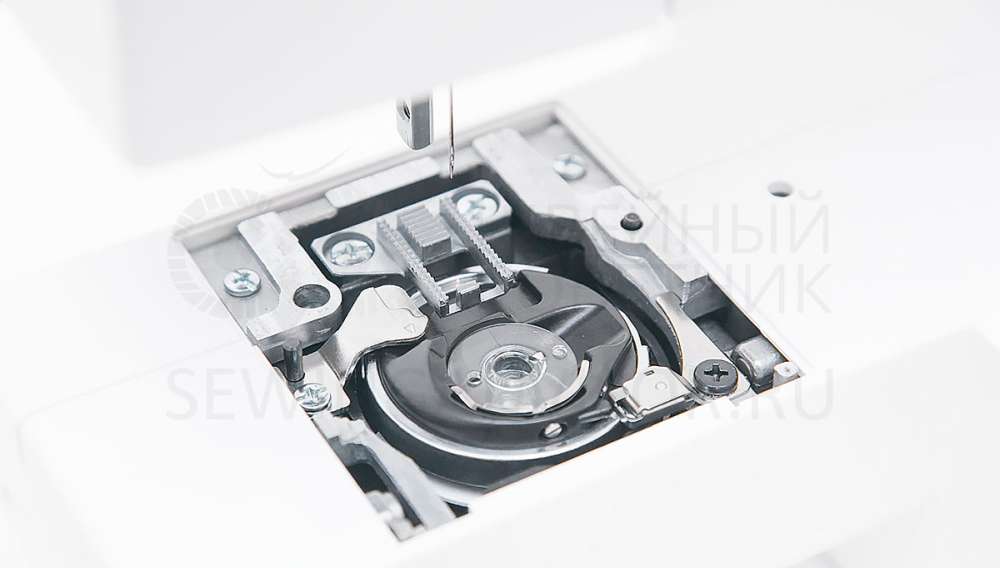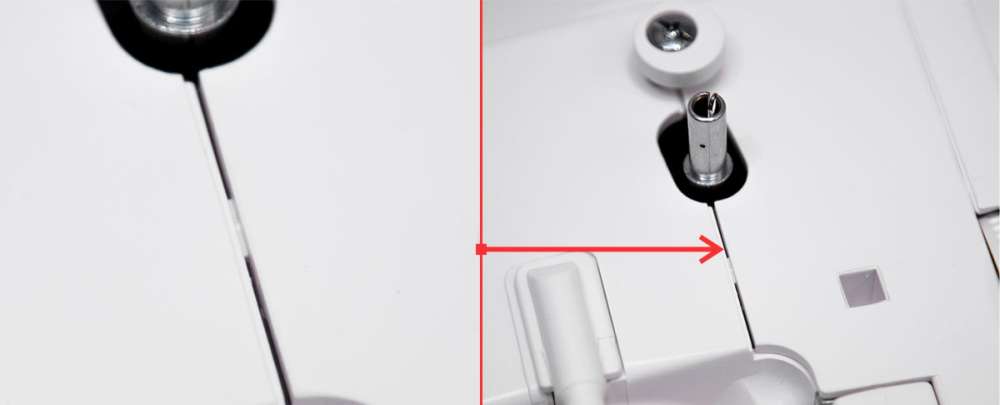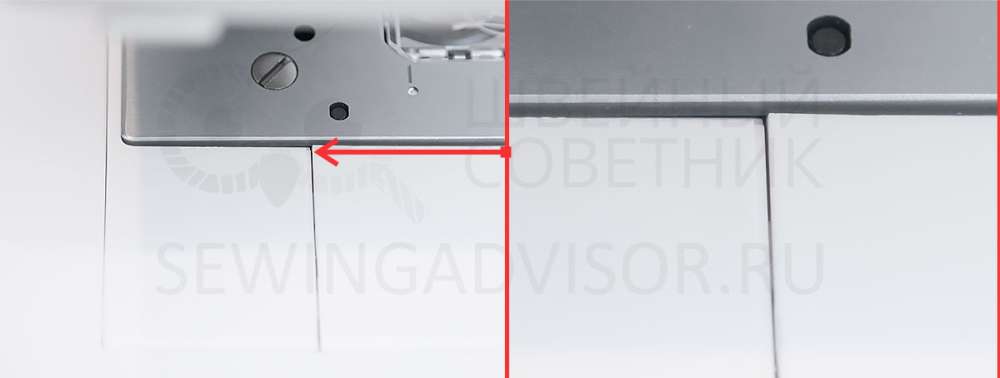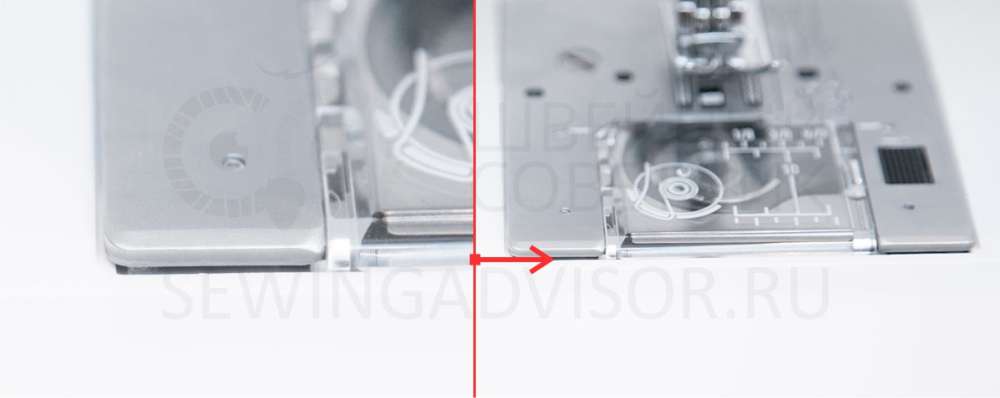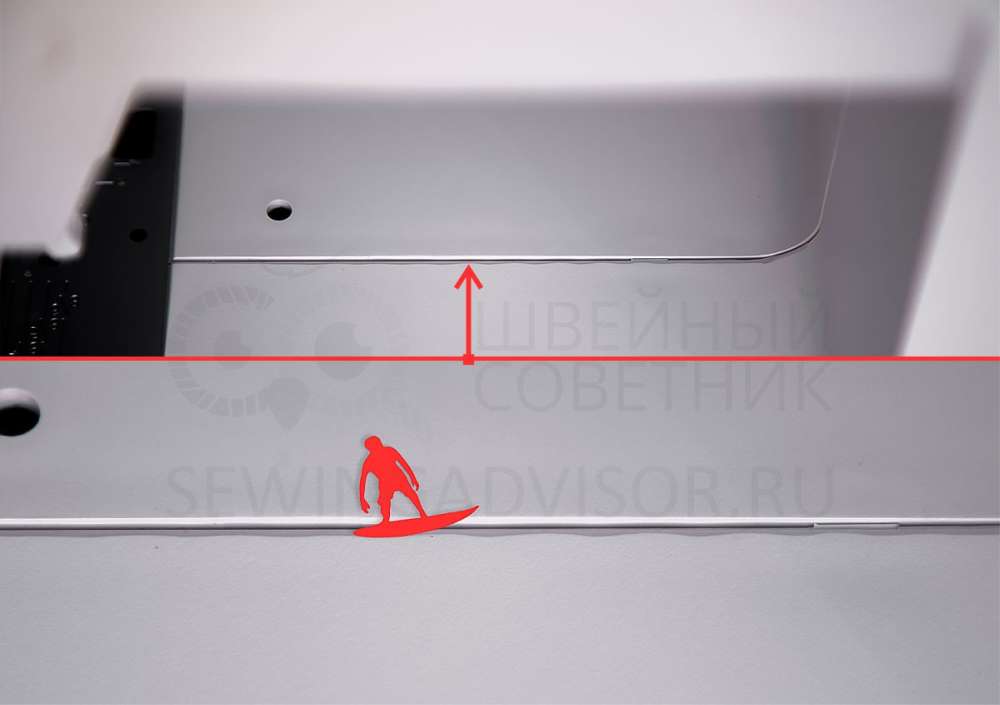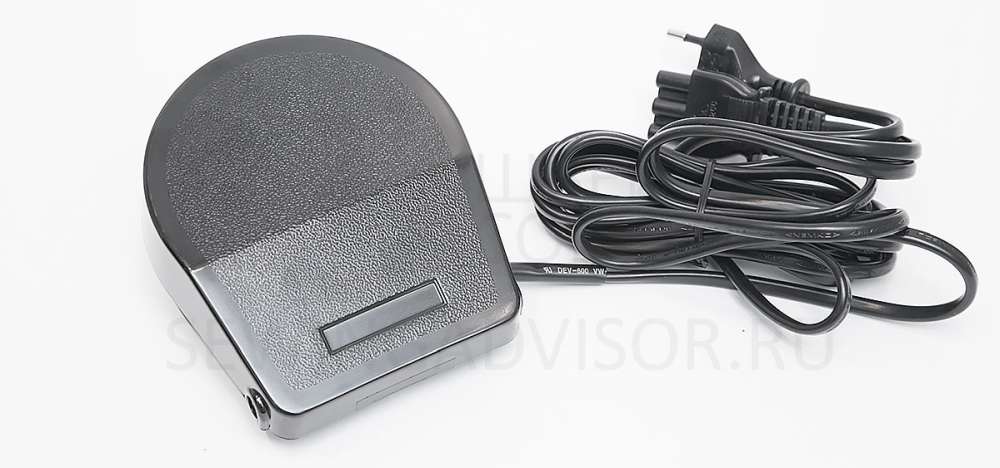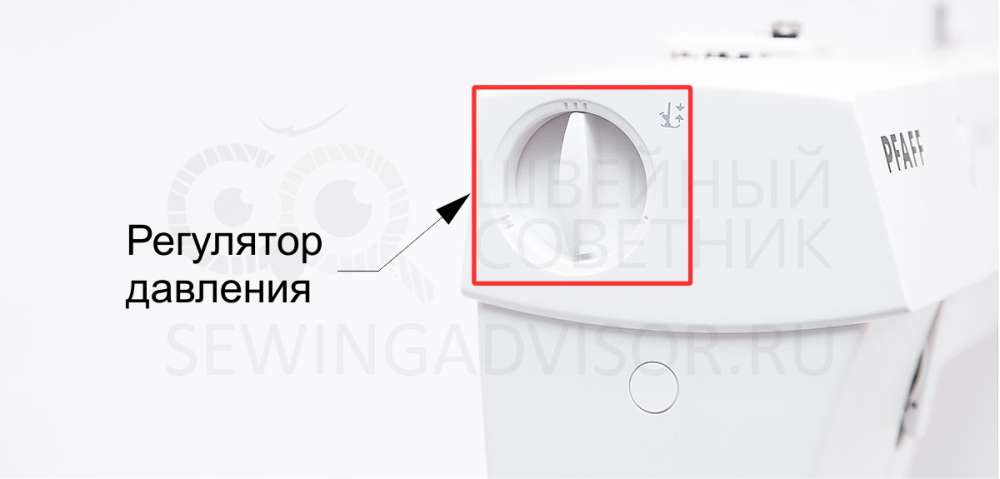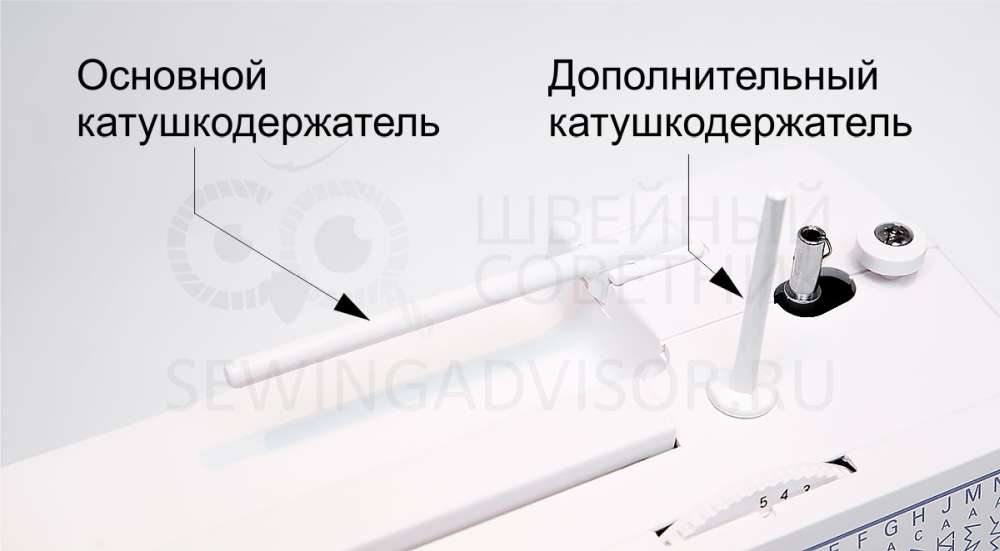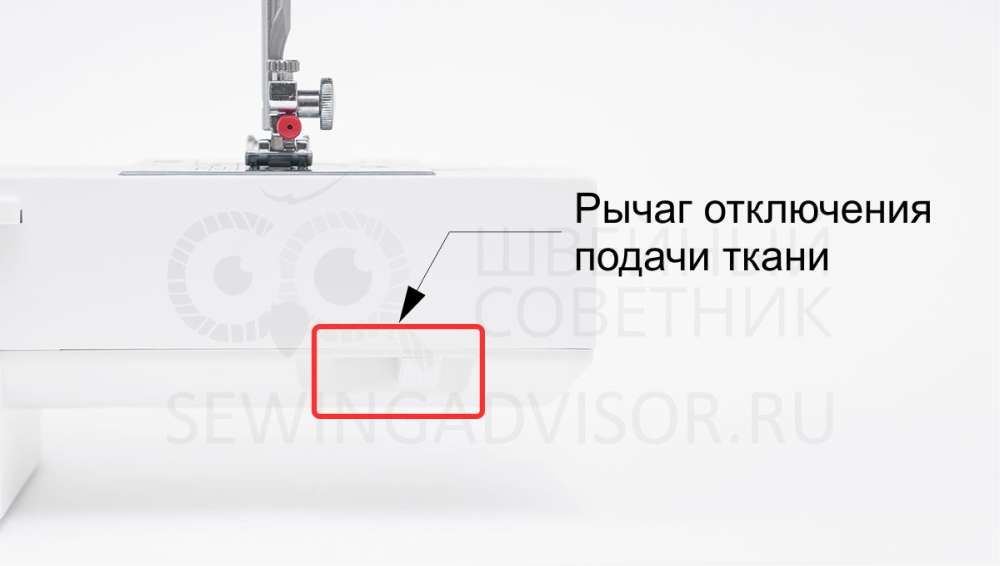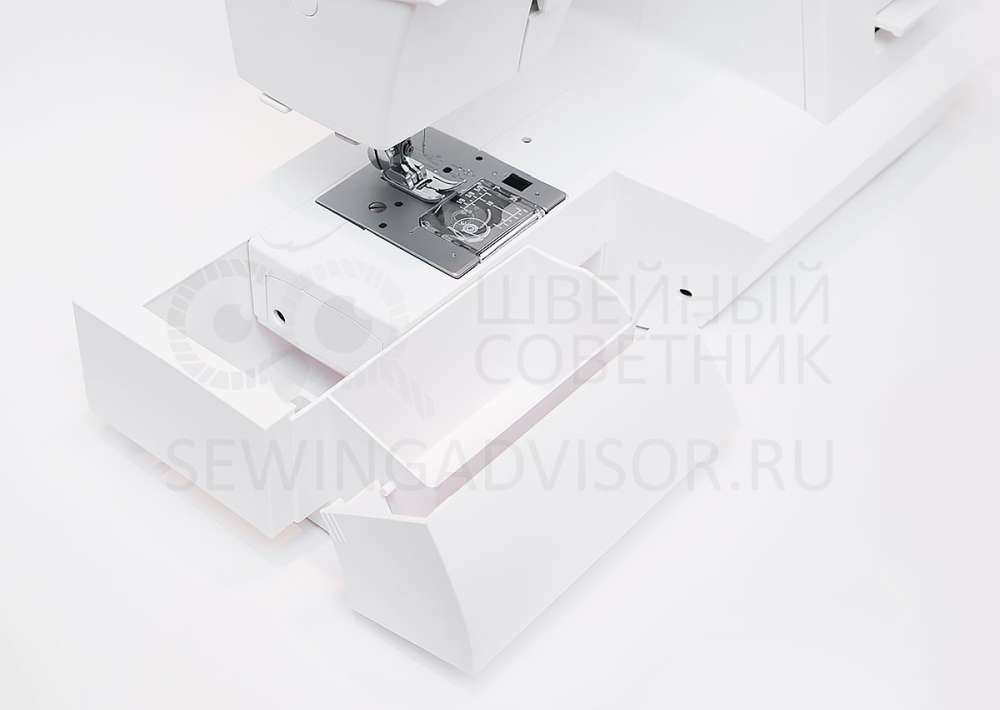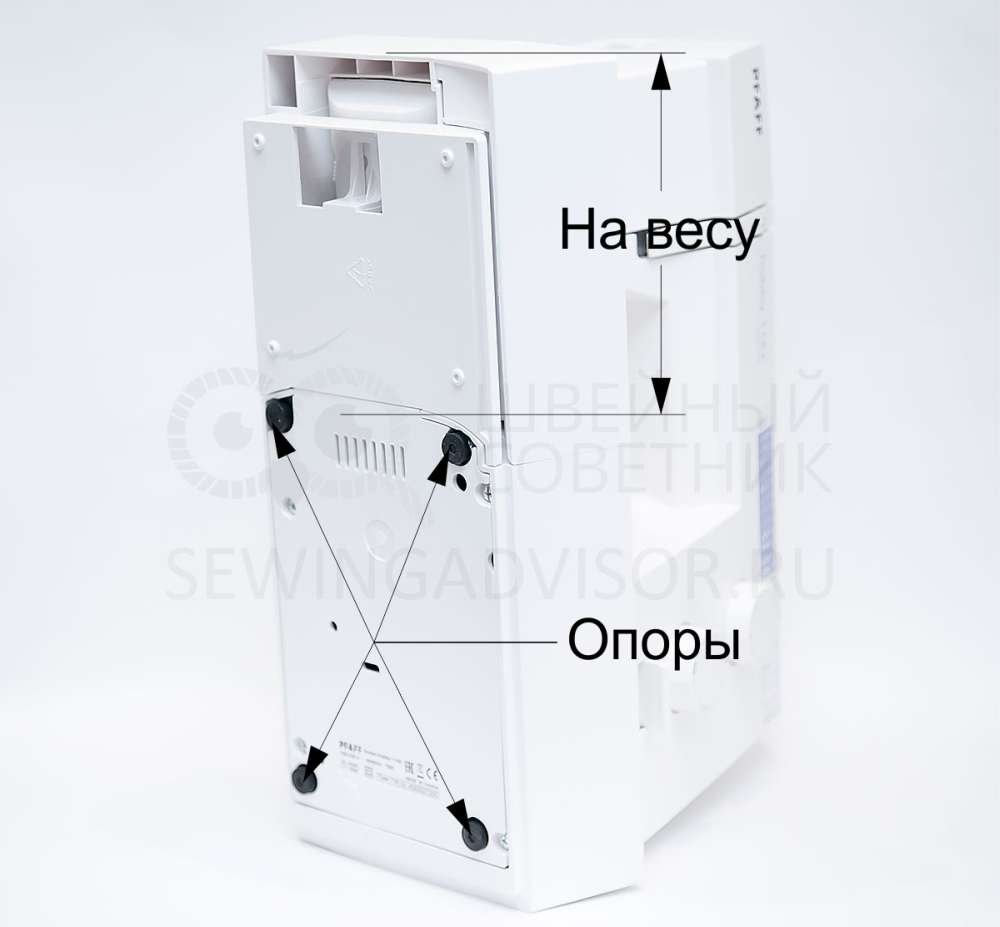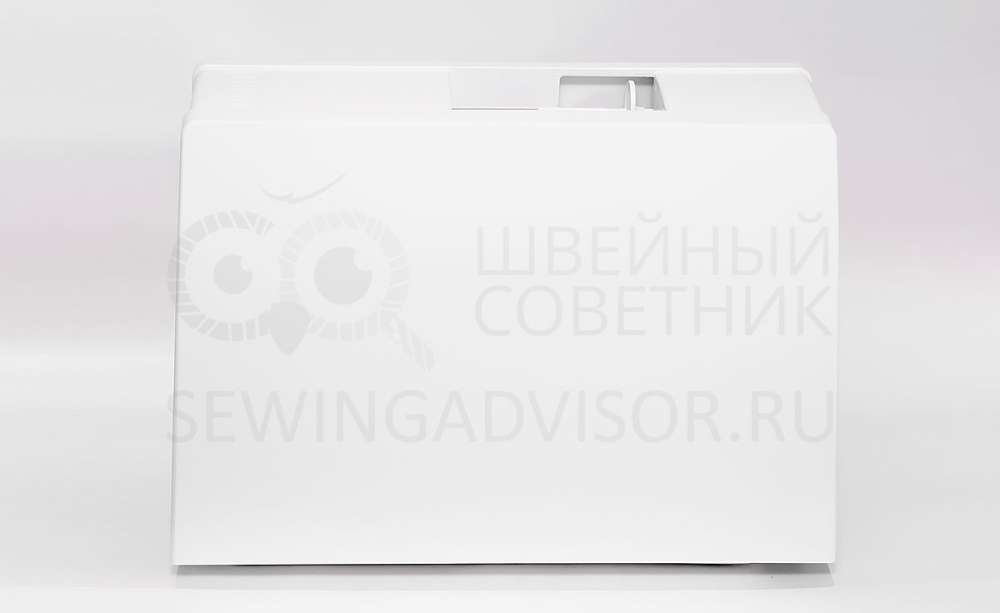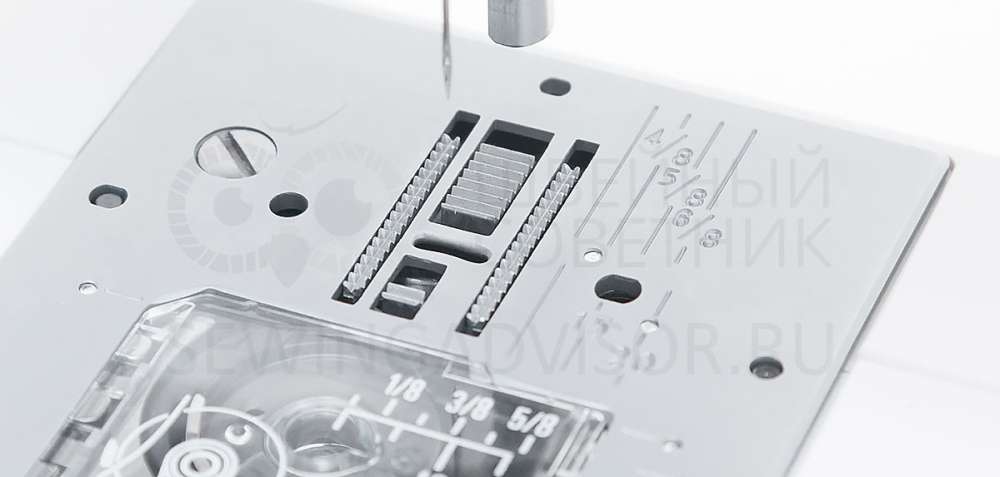- Manuals
- Brands
- Pfaff Manuals
- Sewing Machine
- hobby 1142
- Manual
-
Contents
-
Table of Contents
-
Bookmarks
Quick Links
hobby
1142
O w n e r ´ s m a n u a l
Related Manuals for Pfaff HOBBY 1142
Summary of Contents for Pfaff HOBBY 1142
-
Page 1
hobby 1142 O w n e r ´ s m a n u a l… -
Page 2: Product View
4 4 4 4 4 4 4 4 6 6 6 6 6 6 6 6 5 5 5 5 5 5 5 7 7 7 7 7 7 7 7 3 3 3 3 8 8 8 8 21 1 10 0 2 2 0 1 1 1…
-
Page 3
Parts of your hobby™ 1142 sewing machine Bobbin winder stop Bobbin winder spindle Hole for extra spool pin Spool pin Carrying handle Bobbin thread guide Take-up lever Foot pressure dial Face plate Thread cutter Buttonhole lever Needle threader Slide for lowering the feed dog Needle plate Accessory tray Throat plate… -
Page 4
Your Pfaff dealer will be at your service with any help or advice you need. We wish you many enjoyable… -
Page 5: Important Safety Instructions
This houshold sewing machine is designed to comply with IEC/EN 60335-2-28 and UL1594 IMPORTANT SAFETY INSTRUCTIONS When using an electrical appliance, basic safety precautions should always be followed, including the following: Read all instructions before using this household sewing machine. DANGER — To reduce the risk of electric shock: •…
-
Page 6: Table Of Contents
Accessory tray Seam guides on the needle plate Stitch table Turning a square corner Explanation of the sewing chart 1. Operate your hobby 1142 Straight stitch Carrying handle, carrying case Stretch triple straight stitch Connecting the foot control Zigzag stitch…
-
Page 7: Maintenance And
Introduction 3. Maintenance and trouble-shooting Cleaning Changing the light bulb Trouble-shooting Index Technical data…
-
Page 8: Standard Accessories
Introduction Standard accessories 1 Standard presser foot A Part No. 820 546-096 2 Buttonhole foot B Part No. 820 547-096 3 Overcasting foot C Part No. 820 548-096 4 Zipper foot E Part No. 820 549-096 5 Blindhem foot G Part No.
-
Page 9
Introduction 8-9 Spool cap 13 Extra spool pin Part No. 4160424-01 Part No. 4160292-01 10 Cushion felt 14 Screwdriver Part No. 4160234-01 Part No. 4160422-01 11 Brush 15 Bobbins Part No. 4160409-01 Part No. 4160233-01 12 Seam ripper 16 Needles Part No. -
Page 10: Stitch Table
Introduction Stitch table hobby 1142 Stitch Description Buttonhole Standard buttonhole for blouses or bed linens Straight stitch, needle position For all straight stitching and topstitching work up middle to 4 mm Straight stitch, needle position left For all sewing and topstitching work requiring a…
-
Page 11
1. Operate your hobby 1142… -
Page 12
Operate your hobby 1142 Carrying handle Lift up the carrying handle of the sewing machine from behind. Carrying case The carrying case, which is part of the basic equipment, protects your sewing machine from dust and damage while transporting. Before putting on the carrying case, lift up the carrying handle. -
Page 13
Operate your hobby 1142 Foot pressure dial Turn the foot pressure dial to adjust the foot pressure. The foot pressure dial should be set at “III” for regular sewing. Reduce the pressure to “II” for appliqué, cutwork, drawn work and basting. -
Page 14
Operate your hobby 1142 Presser foot lifter The presser foot is raised or lowered with the presser foot lifter. You can raise the foot about 1/4″ (6 mm) higher than the normal up position for easy removal of the presser foot, or to help you place heavy fabric under the foot. -
Page 15
Operate your hobby 1142 Removing and attaching the foot holder Turn off the main switch. To remove the foot holder Remove the thumbscrew (E) by turning it counterclockwise with a screwdriver and remove the foot holder. To attach the foot holder Match the hole in the foot holder with the threaded hole in the presser bar. -
Page 16: Bobbin Winding
Operate your hobby 1142 Bobbin winding Preparing the machine for bobbin winding Pull out the handwheel to disengage the clutch. Setting the spool Place a spool of thread on the spool pin with the thread coming off the spool as shown in the picture.
-
Page 17
Operate your hobby 1142 Thread through the hole in the bobbin (D) from the inside to the outside as shown in the picture. Place the bobbin on the bobbin winder spindle with the free end of the thread at the top. -
Page 18: Inserting The Bobbin
Operate your hobby 1142 Inserting the bobbin Turn off the main switch. Place the bobbin in the bobbin holder with the thread running off as shown in the picture. Pull the thread into the front notch (A) on the front side of the bobbin holder. Pull the thread to the left, sliding it between the tension spring blades.
-
Page 19
Operate your hobby 1142 Threading the machine Turn off the main switch. Raise the presser foot and turn the handwheel towards you until the take-up lever (F) is in it’s highest position. Pull the thread from the spool and pass it under the thread guide (G). -
Page 20: Needle Threader
1:10 Operate your hobby 1142 Needle threader Turn off the main switch. To make threading the needle easier and quicker, you have been provided with a needle threader. Lower the presser foot. Turn the handwheel until the needle is at its highest position.
-
Page 21
Operate your hobby 1142 1:11 Threading the twin needle How to sew with a twin needle Do not set the stitch width at more than 3 mm, otherwise the needle hit the needle Turn off the main switch plate and the needle will break. -
Page 22: Bringing Up The Bobbin Thread
1:12 Operate your hobby 1142 Bringing up the bobbin thread Turn off the main switch. Raise the presser foot. Hold the needle thread and turn the handwheel towards you until the needle is at the top again and the bobbin thread has formed a loop.
-
Page 23: Stitch Selection
Operate your hobby 1142 1:13 Stretch stitches Stitch selection Raise the needle to its highest position. Turn the stitch selector dial (C) to set the desired stitch at the setting mark (D). Note: Do not turn the stitch selector dial while the needle is in the fabric, otherwise the needle may bend or break.
-
Page 24
1:14 Operate your hobby 1142 Adjusting stretch stitch balance If the stretch stitches are uneven when you sew on a particular fabric, correct them by turning the stitch length dial. Balancing stitches: If the stitches are drawn out, correct them by turning the dial in the “–”… -
Page 25
Operate your hobby 1142 1:15 Variable needle position The needle drop position of the straight stitches can be moved between the center (5) and left (0) with the stitch width dial. Note: Do not turn the stitch width dial while… -
Page 26
1:16 Operate your hobby 1142 Balancing needle thread tension The thread tension should be adjusted depending on the sewing materials, layers of fabric and sewing method. To ensure perfect sewing results, the needle thread tensions must be perfectly tuned. Balanced tension:… -
Page 27
2. Utility stitches and practical sewing… -
Page 28: Basic Sewing
2:2 Utility stitches and practical sewing Basic sewing Starting to sew Raise the presser foot and place the fabric under the foot. Lower the needle into the fabric. Lower the presser foot and smooth the threads toward the back. Depress the foot control.
-
Page 29
Utility stitches and practical sewing Finishing sewing Press the reverse stitch lever and sew several stitches in reverse at the end of the seam. Raise the presser foot and remove the fabric, pulling the threads to the back. Pull the threads up and into the thread cutter. -
Page 30: Free Arm Sewing
Utility stitches and practical sewing Free arm sewing For stitching sleeves, waistbands, pant legs or any other tubular garments. In order to sew with the free arm, you must remove the accessory tray. Hook your ngers on the bottom left of the accessory tray and pull it to the left.
-
Page 31: Seam Guides On The Needle Plate
Utility stitches and practical sewing Seam guides on the needle plate The seam guides on the needle plate help you to measure seam allowance. The numbers indicate the distance between the center needle position and the seam guide. inches Turning a square corner When the fabric edge facing you lines up with the cornering guide (C) as shown in the picture, stop stitching and lower…
-
Page 32: Explanation Of The Sewing Chart
2:6 Utility stitches and practical sewing Explanation of the sewing chart The following charts show the stitch recommended settings for each stitch or technique. These charts also provide you with further instructions that are necessary when sewing the selected stitches. The choice of the sewing foot, the Recommended stitch setting of the needle thread tension and…
-
Page 33: Straight Stitch
Utility stitches and practical sewing stitch 1.5-4 Straight stitch Straight stitch B/C is the basic straight stitch. The stitch length can be increased up to 4 mm. It is easier to do some sewing jobs by changing the needle position, e.g. top- stitching a collar or sewing in a zipper.
-
Page 34: Stretch Triple Straight Stitch
Utility stitches and practical sewing stitch stitch 0.5-3 stretch Stretch triple straight stitch Zigzag stitch This stitch is used for sewing all seams Simple zigzag stitching is widely used for where great strength is needed, e.g. inside overcasting, sewing on buttons etc. Adjust trouser seams, crotch and armhole seams.
-
Page 35: Honeycomb Stitch
Utility stitches and practical sewing stitch stitch 0.5-1.5 stretch Tricot stitch (Triple zigzag stitch) Honeycomb stitch This stitch is used to nish the seam The honeycomb stitch is an elastic and allowance on synthetics and other fabrics decorative hem which is particularly that tend to pucker.
-
Page 36: Closed Overlock Stitch
2:10 Utility stitches and practical sewing stitch stitch stretch stretch What is an overlock stitch? Closed overlock stitch For elastic materials and knits, the hobby The closed overlock stitch is perfect for 1142 offers an overlock stitch which sews sewing jersey knits. You can also sew two fabric layers together and overcasts sleeve cuffs and knit collars which are simultaneously.
-
Page 37: Blindhem Stitch (Elastic)
Utility stitches and practical sewing 2:11 Stitch F Stitch G stitch Blindhem Blindhem stitch (elastic) Stitch F is a blindhem stitch for woven Blindhem foot G is best suited for or elastic materials. The hem is sewn and invisible hems; sewing by hand is no overcast at the same time.
-
Page 38: Automatic Buttonhole
2:12 Utility stitches and practical sewing stitch 0.5-1 Automatic Buttonhole To open the button holder (A), pull to the back and place the button in it. Push back Buttonholes are generally sewn onto a the button holder against the button to piece of doubled fabric.
-
Page 39
Utility stitches and practical sewing 2:13 The machine sews the front bartack and To sew another buttonhole, turn the stitch left row rst, then the back bartack and selector to “ ”, then back to “A” again. right row. Then press the foot control to sew an identical buttonhole. -
Page 40: Buttonhole With Gimp Thread
2:14 Utility stitches and practical sewing stitch stitch 0.5-1 0.5-1 Buttonhole with gimp thread Manual buttonhole To sew strong durable buttonholes, on If the diameter of the button is more than heavy fabrics, knits or sportswear, using a 2.5 cm (1″), a buttonhole must be made gimp thread is recommended.
-
Page 41: Button Sewing
Utility stitches and practical sewing 2:15 stitch adjust Button sewing Raise the presser foot and remove the fabric. Cut the needle and bobbin threads With zigzag stitch D you can sew on two- leaving 20 cm (8″) tails. and four-hole buttons. Bring the needle thread between the Note: Lower the feed dog when sewing on button and fabric through the holes in the…
-
Page 42: Sewing On Zippers
2:16 Utility stitches and practical sewing The trouser zipper stitch • Iron the seam allowances, making sure that the underlap extends by about 4 1.5-4 • Baste the zipper under the underlap so that the teeth are visible. Sewing on zippers •…
-
Page 43
Utility stitches and practical sewing 2:17 Fully concealed, sew-in zipper • Sew the second half of the zipper parallel at the same distance. • Insert the zipper foot on the right side (A) to sew on the left side of the zipper. •… -
Page 44: Darning With The Elastic Stitch
2:18 Utility stitches and practical sewing Darning with the elastic stitch stitch Darning with the elastic stitch is suitable for repairing damaged areas. 0.2-1.5 • Sew over the damaged area in rows until it is well covered. Make sure that the rows overlap.
-
Page 45
3. Maintenance and trouble-shooting… -
Page 46
Maintenance and trouble-shooting Cleaning: Turn off the main switch It is very important to clean your sewing machine, because it will reward you with a longer service life. The more often you use the machine, the more care it needs. Do not dismantle the machine other than as explained in this section. -
Page 47
Maintenance and trouble-shooting Changing the light bulb Turn off the main switch • Disconnect the main plug and the foot control plug from the machine. • If you have used the machine, wait for the lamp to cool before touching it. Removal •… -
Page 48
3:4 Maintenance and trouble-shooting Trouble-shooting The needle thread breaks. The needle thread is not threaded properly. Page 1:9 The needle thread tension is too tight. Page 1:16 The needle is bent or blunt. Page 1:5 The needle is incorrectly inserted. Page 1:5 The needle thread and the bobbin thread are not set under the Page 2:2… -
Page 49
Maintenance and trouble-shooting The cloth is not fed smoothly The feed dog is packed with lint. Page 3:2 The stitches are too ne. Page 1:13 The feed dog is not raised after ”drop feed” sewing. Page 1:3 Loops on the seams The needle thread tension is too loose. -
Page 50
3:6 Maintenance and trouble-shooting Index Foot preassure dial Accessories — optional Free arm sewing — standard Accessory tray Automatic buttonhole 2:12 Honeycomb stitch Basic sewing Blindhem 2:11 Inserting the bobbin Blindhem stitch (elastic) 2:11 Bobbin winding Bringing up the bobbin thread 1:12 Manual buttonhole 2:14… -
Page 51
Maintenance and trouble-shooting Seam guides on the needle plate Sewing chart — explanation Sewing on patches 2:18 Sewing on zippers 2:16 Special accessories Straight stitch Stretch stitch balance — adjust 1:14 Stretch triple straight stitch Standard accessories Stitch length dial 1:13 Stitch selection 1:13… -
Page 52: Technical Data
Technical data Dimensions (w x h x d) 385 x 280 x 170 Weight 8 kg Nominal voltage (Europe) 230 V Nominal voltage (USA/Canada) 120 V Nominal voltage (Australia) 240 V Power consumption 75 W Sewing lamp 15 W Sewing speed Max 800 stitches/minute Stitching width 0…5 mm…
-
Page 55
Such modi cations, however, will always be to the bene t of the user and the product. Intellectual Property PFAFF and HOBBY are trademarks of KSIN Luxembourg II, S.ar.l. All trademarks are used under license by VSM Group AB. -
Page 56
VSM Group AB • SE-561 84 Huskvarna • SWEDEN www.pfaff.com…
Посмотреть инструкция для Pfaff hobby 1142 бесплатно. Руководство относится к категории швейные машины, 7 человек(а) дали ему среднюю оценку 8.9. Руководство доступно на следующих языках: английский. У вас есть вопрос о Pfaff hobby 1142 или вам нужна помощь? Задайте свой вопрос здесь
Не можете найти ответ на свой вопрос в руководстве? Вы можете найти ответ на свой вопрос ниже, в разделе часто задаваемых вопросов о Pfaff hobby 1142.
Какой размер иглы лучше всего использовать?
Какой срок службы у швейной иглы?
Что может повредить иглу при шитье?
Инструкция Pfaff hobby 1142 доступно в русский?
Не нашли свой вопрос? Задайте свой вопрос здесь
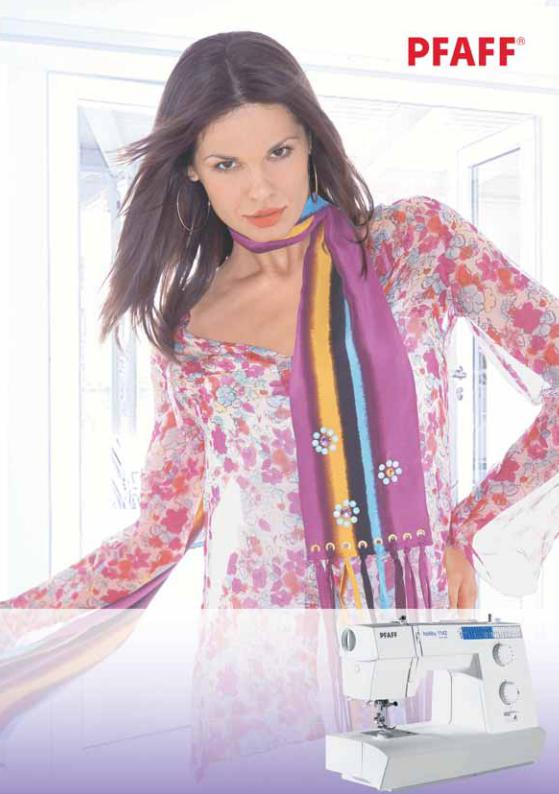
hobby1142
O w n e r ´ s m a n u a l
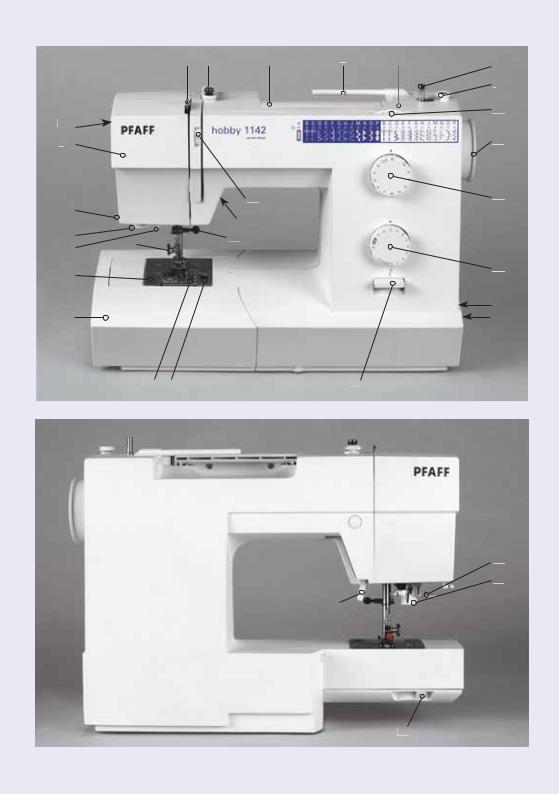
|
7 |
6 |
5 |
4 |
3 |
2 |
|
|
8 |
28 |
|||||
|
9 |
27 |
|||||
|
10 |
21 |
26 |
||||
|
20 |
||||||
|
11 |
||||||
|
18 |
19 |
|||||
|
12 |
||||||
|
14 |
25 |
|||||
|
15 |
24 |
|||||
|
23 |
12
11
20
3

Parts of your hobby™ 1142 sewing machine
1Bobbin winder stop
2Bobbin winder spindle
3Hole for extra spool pin
4Spool pin
5Carrying handle
6Bobbin thread guide
7Take-up lever
8Foot pressure dial
9Face plate
10Thread cutter
11Buttonhole lever
12Needle threader
13Slide for lowering the feed dog
14Needle plate
15Accessory tray
16Throat plate
17Throat plate release button
18Thumbscrew
19Needle screw
20Presser foot lifter
21Thread tension dial
22Reverse stitch lever
23Power switch
24Connecting socket
25Stitch length dial
26Stitch selector dial
27Handwheel
28Stitch width dial

Congratulations on purchasing your new PFAFF® hobby!
Your hobby is so easy to use and offers a whole range of features and accessories for you to explore. Please spend some time reading these operating instructions as it is
a great way to learn the machine and also to make full use of the features.
Your Pfaff dealer will be at your service with any help or advice you need.
We wish you many enjoyable hours of sewing !
Some fabrics have excess dye which can cause discoloration on other fabric but also on your sewing machine. This discoloring may be very difÀcult or
impossible to remove.
Fleece and denim fabric in especially red and blue often contain a lot of excess dye.
If you suspect that your fabric/ready-to-wear garment contains a lot of excess dye, always pre-wash it before sewing/ embroidering to avoid the discoloring.
This houshold sewing machine is designed to comply with IEC/EN 60335-2-28 and UL1594
IMPORTANT SAFETY INSTRUCTIONS
When using an electrical appliance, basic safety precautions should always be followed, including the following:
Read all instructions before using this household sewing machine.
DANGER — To reduce the risk of electric shock:
•A sewing machine should never be left unattended when plugged in. Always unplug this sewing machine from the electric outlet immediately after using and before cleaning.
•Always unplug before relamping. Replace bulb with same type rated 15 Watt.
WARNING — To reduce the risk of burns, Àre, electric shock, or injury to persons:
•This sewing machine is not intended for use by persons (including children) with reduced physical, sensory or mental capabilities, or lack of experience and knowledge, unless they have been given supervision or instruction concerning use of the sewing machine by a person responsible for their safety.
•Children should be supervised to ensure that they do not play with the sewing machine.
•Use this sewing machine only for its intended use as described in this manual. Use only attachments recommended by the manufacturer as contained in this manual.
•Never operate this sewing machine if it has a damaged cord or plug, if it is not working properly, if it has been dropped or damaged, or dropped into water. Return the sewing machine to the nearest authorised dealer or service center for examination, repair, electrical or mechanical adjustment.
•Never operate the sewing machine with any air openings blocked. Keep ventilation openings of the Sewing machine and foot controller free from the accumulation of lint, dust, and loose cloth.
•Keep Àngers away from all moving parts. Special care is required around the Sewing machine needle.
•Always use the proper needle plate. The wrong plate can cause the needle to break.
•Do not use bent needles.
•Do not pull or push fabric while stitching. It may deÁect the needle causing it to break.
•Wear safety glasses.
•Switch the sewing machine off (“0”) when making any adjustment in the needle area, such as threading needle, changing needle, threading bobbin, or changing presser foot, etc.
•Always unplug the sewing machine from the electrical outlet when removing covers, lubricating, or when making any other user servicing adjustments mentioned in the instruction manual.
•Never drop or insert any object into any opening.
•Do not use outdoors.
•Do not operate where aerosol (spray) products are being used or where oxygen is being administrated.
•To disconnect, turn all controls to the off (“0”) position, then remove plug from outlet.
•Do not unplug by pulling on cord. To unplug, grasp the plug, not the cord.
SAVE THESE INSTRUCTIONS

II Introduction
TABLE OF CONTENTS
Introduction
|
Standard accessories |
IV |
|
Optional accessories |
V |
|
Accessory tray |
V |
|
Stitch table |
VI |
1. Operate your hobby 1142
|
Carrying handle, carrying case |
1:2 |
|
Connecting the foot control |
1:2 |
|
Foot preassure dial |
1:3 |
|
Dropping the feed dog |
1:3 |
|
Presser foot lifter |
1:4 |
|
Changing the presser foot |
1:4 |
|
Removing and attaching |
|
|
the foot holder |
1:5 |
|
Changing the needle |
1:5 |
|
Bobbin winding |
1:6 |
|
Inserting the bobbin |
1:8 |
|
Threading the machine |
1:9 |
|
Needle threader |
1:10 |
|
Threading for twin needle |
1:11 |
|
Bringing up the bobbin thread |
1:12 |
|
Stitch selection |
1:13 |
|
Stitch length dial |
1:13 |
|
Adjusting stretch stitch balance |
1:14 |
|
Stitch width dial |
1:14 |
|
Variable needle position |
1:15 |
|
Reverse sewing |
1:15 |
|
Balancing needle thread tension |
1:16 |
2. Utility stitches and practical sewing
|
Basic sewing |
2:2 |
|
Free arm sewing |
2:4 |
|
Seam guides on the needle plate |
2:5 |
|
Turning a square corner |
2:5 |
|
Explanation of the sewing chart |
2:6 |
|
Straight stitch |
2:7 |
|
Stretch triple straight stitch |
2:8 |
|
Zigzag stitch |
2:8 |
|
Tricot stitch (Triple zigzag stitch) |
2:9 |
|
Honeycomb stitch |
2:9 |
|
Open overlock stitch (Knit stitch) |
2:10 |
|
Closed overlock stitch |
2:10 |
|
Blindhem |
2:11 |
|
Blindhem stitch (elastic) |
2:11 |
|
Automatic buttonhole |
2:12 |
|
Buttonhole with gimp thread |
2:14 |
|
Manual buttonhole |
2:14 |
|
Button sewing |
2:15 |
|
Sewing on zippers |
2:16 |
|
Sewing on patches |
2:18 |
|
Darning with the elastic stitch |
2:18 |
|
Repairing tears |
2:18 |

Introduction III
3. Maintenance and trouble-shooting
|
Cleaning |
3:2 |
|
Changing the light bulb |
3:3 |
|
Trouble-shooting |
3:4 |
|
Index |
3:6 |
|
Technical data |
3:8 |
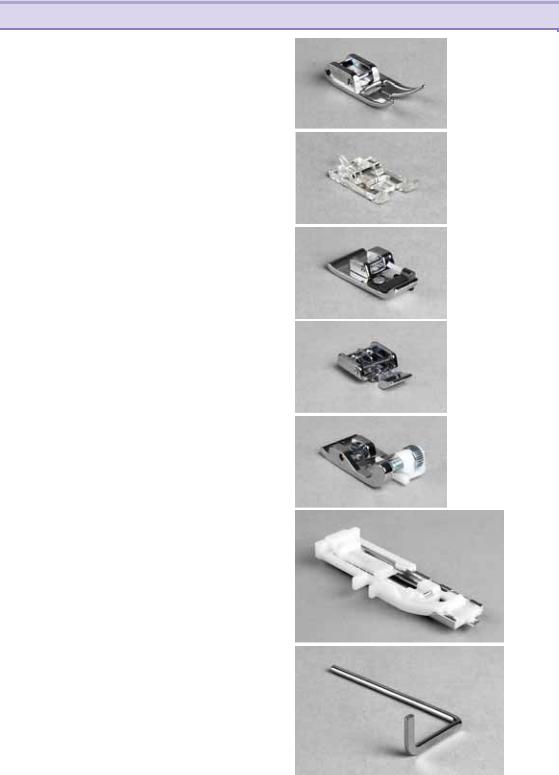
IV Introduction
Standard accessories
1Standard presser foot A
Part No. 820 546-096
2Buttonhole foot B
Part No. 820 547-096
3Overcasting foot C
Part No. 820 548-096
4Zipper foot E
Part No. 820 549-096
5Blindhem foot G
Part No. 820 550-096
6Automatic buttonhole foot R
Part No. 820 551-096
|
7 Edge Guide/Quilting Guide |
7 |
|
|
Part No. 820 552-096 |
||
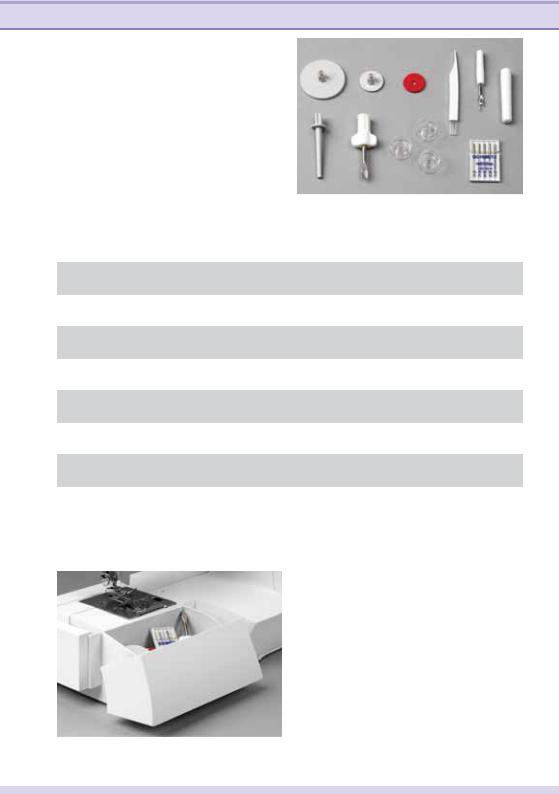
Introduction V
|
8-9 Spool cap |
13 Extra spool pin |
8 |
11 |
12 |
||
|
Part No. 4160424-01 |
Part No. 4160292-01 |
9 |
10 |
|||
|
10 Cushion felt |
14 Screwdriver |
|||||
|
Part No. 4160234-01 |
Part No. 4160422-01 |
|||||
|
11 Brush |
15 Bobbins |
|||||
|
Part No. 4160409-01 |
Part No. 4160233-01 |
|||||
|
12 Seam ripper |
16 Needles |
|||||
|
Part No. 4160304-01 |
Part No. 4160471-01 |
|||||
|
13 |
14 |
15 |
16 |
Optional accessories — available from your dealer
|
Bias binder foot |
820 554-096 Makes it easier to put bias tape on your projects, pre- |
|
|
fabricated or hand made |
||
|
Dual feeder with |
820 555-096 This foot will help the fabric move more smoothly, |
|
|
quilting guide |
feeding from both top and bottom |
|
|
Gathering foot |
820 556-096 When you want to have a nice gathering on a single |
|
|
layer of fabric |
||
|
Pintuck foot deep |
820 557-096 |
Make nice even rows of pintucks, with or without |
|
groove with yarn guide |
cording |
|
|
Piping foot |
820 558-096 |
The foot has grooves to make it easier to sew perfect |
|
piping |
||
|
Ribbon sewing foot |
820 559-096 |
Your ribbon is hold perfectly in place while you sew it |
|
onto your project |
||
|
Roller foot |
820 560-096 |
For a better feed on material like vinyl plastic and |
|
leather |
Accessory tray
Your sewing machine has a removable accessory tray which is also used as an extended work support. The enclosed accessories are numbered.
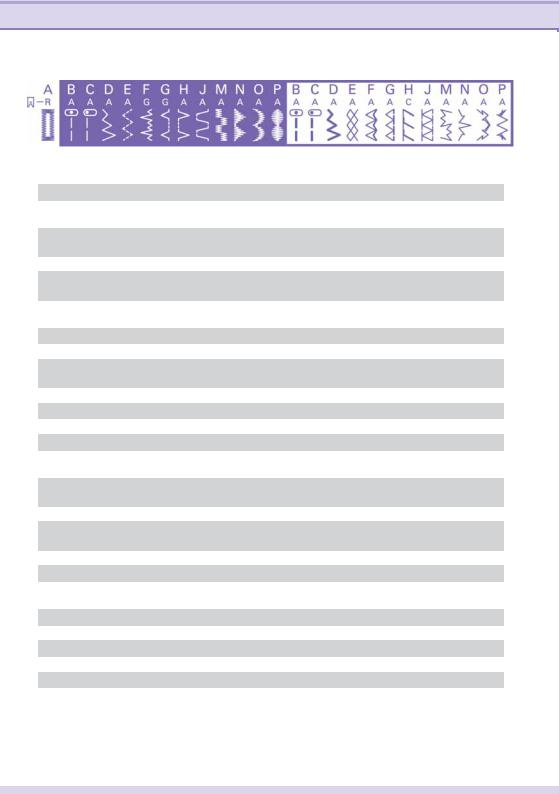
VI Introduction
Stitch table hobby 1142
Stitch
AButtonhole
BStraight stitch, needle position middle
CStraight stitch, needle position left
DZigzag stitch
ETriple zigzag stitch
FElastic blindhem stitch
GBlindhem stitch
HShell-edging stitch
J Greek stitch
MChecker satin stitch
NTriangle satin stitch
OOpen scallop
POval satin stitch
BStretch triple straight stitch, needle position middle
CStretch triple straight stitch, needle position left
DStretch triple zigzag stitch
EHoneycomb stitch
FEdge stitch wide
GEdge stitch narrow
HOpen overlock stitch
J Closed overlock stitch
MDecorative stitch
NDecorative stitch
ODecorative stitch
PDecorative stitch
Description
Standard buttonhole for blouses or bed linens
For all straight stitching and topstitching work up to 4 mm
For all sewing and topstitching work requiring a left needle position
For serging and appliqué
For stitching on elastic band, darning tears and patches
For invisible hem attachment and simultaneous serging. Also for stretch fabrics
For invisible hem attachment
For decorative hems on Àne materials, e.g. linen
A traditional decorative stitch e.g. for borders and towels
Satin decorative stitch Satin decorative stitch Satin decorative stitch Satin decorative stitch
For stretch seams, e.g. crotch seams on sportsand workwear
For stretch seams requiring a left needle position
For attaching elastic tape on elastic materials
For sewing on elastic threads, overlocking towelling and for decorative hem seams
For closing and serging one or more fabric layers For closing and serging one or more fabric layers
A closing and serging seam for stronger or nonfraying materials
A closing and serging seam for fraying materials A decorative stretch stitch
A decorative stretch stitch A decorative stretch stitch A decorative stretch stitch

1. Operate your hobby 1142
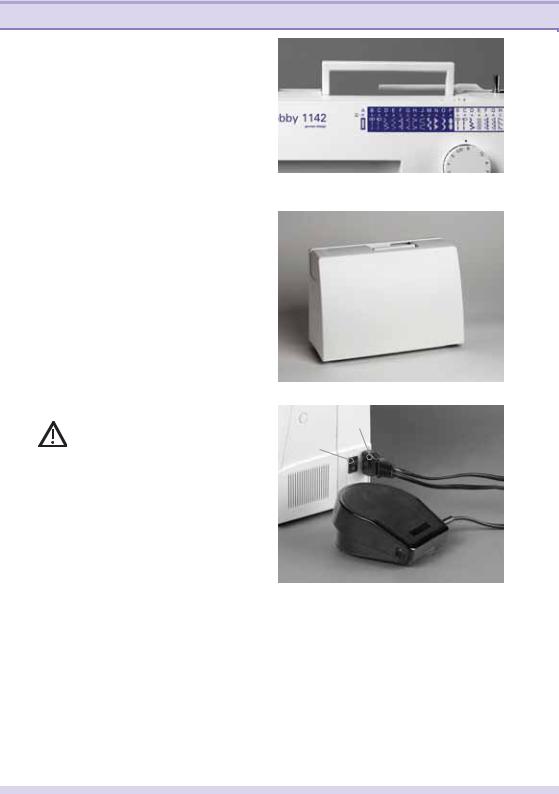
1:2 Operate your hobby 1142
Carrying handle
Lift up the carrying handle of the sewing machine from behind.
Carrying case
The carrying case, which is part of the basic equipment, protects your sewing machine from dust and damage while transporting.
Before putting on the carrying case, lift up the carrying handle.
Connecting the foot control
Before connecting to the power supply, make sure the voltage shown on the
machine conforms to your electrical power.
Connect the plug of the foot control to the connecting socket (A) of the sewing machine and to the wall socket. The sewing speed is regulated by pressing the foot control.
Make sure that you have the right type of foot control:
For USA and Canada, 120V — YC-482J (not shown)
For Europe, 230V — YC-190 For Australia, 240V — YC-190A
Main switch
When the main switch (B) is turned on, the sewing light bulb lights up. The sewing machine is now ready to use.
A
B
For the USA and Canada
This appliance has a polarized plug (one blade wider than the other). To reduce the risk of electric shock, this plug is intended to Àt in a polarized outlet only one way. If the plug does not Àt fully in the outlet, reverse the plug. If it still does not Àt, contact a qualiÀed electrician to install the proper outlet.
DO NOT modify the plug in any way.
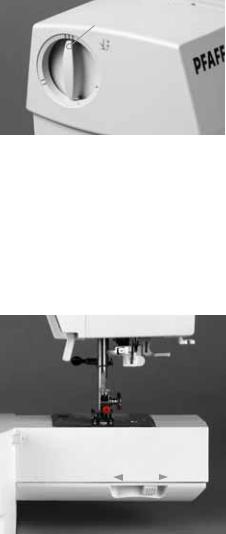
|
Operate your hobby 1142 1:3 |
|
|
C |
Foot pressure dial |
|
Turn the foot pressure dial to adjust the |
|
|
foot pressure. |
|
|
The foot pressure dial should be set at |
|
|
“III” for regular sewing. |
|
|
Reduce the pressure to “II” for appliqué, |
|
|
cutwork, drawn work and basting. |
|
|
Set the setting mark (C) at “I” when |
|
|
sewing chiffon, lace, organdy and other |
|
|
Àne fabrics. |
Dropping the feed dog
For certain sewing work, e.g. darning the feed dog has to be dropped.
The slide for lowering the feed dog is located underneath the free-arm bed on the backside of the machine.
|
To drop the feed dog, push the slide in |
|||||
|
the direction of the arrow, as shown in the |
|||||
|
D |
E |
picture (D). |
|||
|
To raise the feed dog, push the silde in |
|||||
|
the direction of the arrow, as shown in |
|||||
|
the picture (E), and turn the handwheel |
|||||
|
toward you. |
|||||
|
The feed dog must be up for regular |
|||||
|
sewing. |
|||||
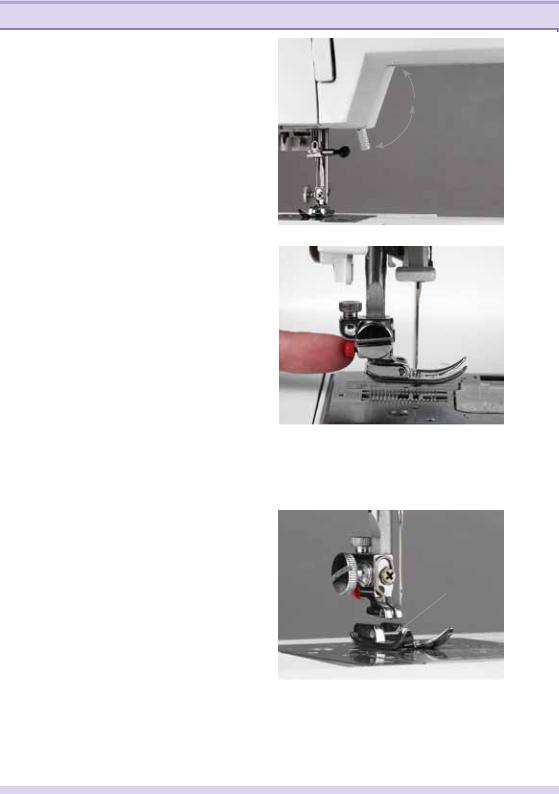
1:4 Operate your hobby 1142
Presser foot lifter
The presser foot is raised or lowered with the presser foot lifter.
You can raise the foot about 1/4″ (6 mm) higher than the normal up position for easy removal of the presser foot, or to help you place heavy fabric under the foot.
ALowered position
BNormal up position
CExtra lift position
Changing the presser foot

Removing the presser foot
Raise the needle to its highest position by turning the handwheel.
Raise the presser foot, and press the red button on the back of the foot holder.
Engaging the presser foot
Place the desired presser foot, so that when the presser foot lifter is lowered, the pins (D) of the foot engage in the presser foot holder.
Note: Check that the presser foot is properly engaged by raising the presser foot lifter.
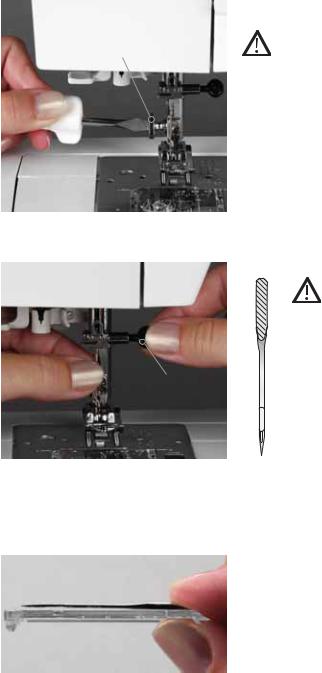
|
Operate your hobby 1142 1:5 |
|||
|
Removing and attaching the foot |
|||
|
holder |
|||
|
E |
Turn off the main switch. |
||
|
To remove the foot holder |
|||
|
Remove the thumbscrew (E) by turning it |
|||
|
counterclockwise with a screwdriver and |
|||
|
remove the foot holder. |
|||
|
To attach the foot holder |
|||
|
Match the hole in the foot holder with |
|||
|
the threaded hole in the presser bar. Fit |
|||
|
the thumbscrew into the hole. Tighten |
|||
|
the screw by turning it clockwise with a |
|||
|
screwdriver. |
|||
|
Changing the needle |
|||
|
Turn off the main switch. |
|||
|
To remove the needle |
|||
|
Lower the presser foot and |
|||
|
move the needle to its highest |
|||
|
point. Now loosen the needle |
|||
|
F |
screw (F) and pull the needle |
||
|
downwards. |
|||
|
To insert the needle |
|||
|
The Áat side of the needle |
|||
|
must face to the rear. Lower |
|||
|
the presser foot and insert the |
|||
|
needle, pushing it up as far as |
|||
|
it goes. Hold the needle and tighten the |
|||
|
needle screw Àrmly. |
|||
|
To check for a good needle: |
|||
|
Put the Áat side of the needle onto |
|||
|
something Áat (needle plate, glass etc.). |
|||
|
The gap between the needle and the Áat |
|||
|
surface should be consistent. |
|||
|
Never use a bent or blunt needle. |
|||
|
Note: Check the needle frequently for barbed |
|||
|
or blunted points. |
|||
|
A damaged needle can cause permanent |
|||
|
snaps or runs in knits, Àne silks and silk- |
|||
|
like fabrics. |
|||
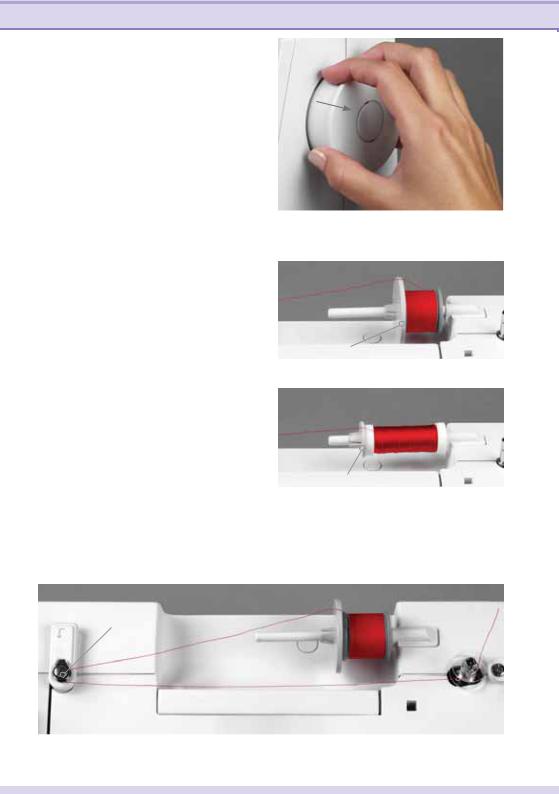
1:6 Operate your hobby 1142
Bobbin winding
Preparing the machine for bobbin winding
Pull out the handwheel to disengage the clutch.
Setting the spool
Place a spool of thread on the spool pin with the thread coming off the spool as shown in the picture.
|
Press the large spool cap (A) Àrmly |
A |
|
against the spool of thread. |
|
|
For a small spool, use the small spool cap |
|
|
(B). |
B
Pull the thread around the bobbin thread guide(C).
C
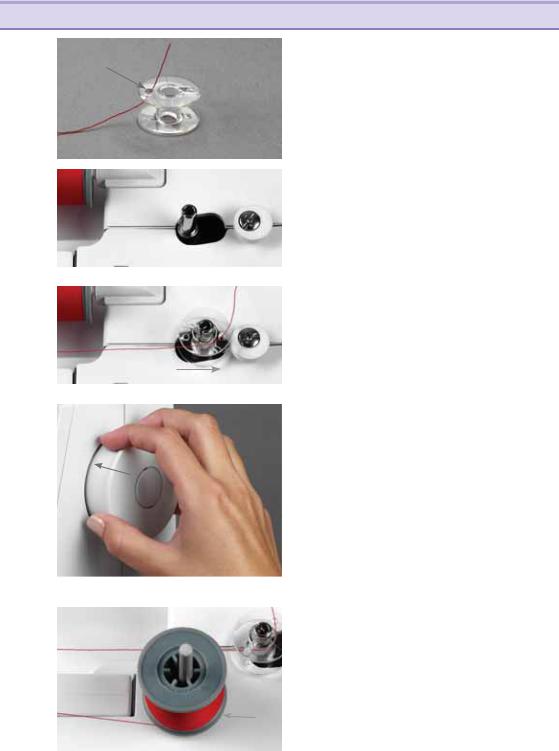
Operate your hobby 1142 1:7
Thread through the hole in the bobbin (D) D from the inside to the outside as shown in
the picture.
Place the bobbin on the bobbin winder spindle with the free end of the thread at the top.
Push the bobbin to the right.
Note: The bobbin can only be wound when it is moved fully to the right. Do not move the bobbin winder spindle while the machine is running.
Hold the end of the thread Àrmly and press the foot control. Stop the machine when the bobbin has made several turns, and cut the free thread end close to the bobbin.
Press the foot control again. When the bobbin is fully wound, it will stop automatically.
Push the bobbin to the left, remove it and cut the thread.
Push in the handwheel to engage the clutch.
Extra spool pin
If the machine is already threaded, you can easily wind thread from the second spool pin without unthreading the machine.
Insert the extra spool pin into the hole (E). Place the felt and a spool on the pin.
|
E |
Thread the machine for winding in the |
|
same way as before. |
|

Содержание:
- Размеры
- Операции
- Комплектация
- Надежность
- Удобство использования
- Прошиваемость материалов
- Шум
Размеры
Операции
Количество операции швейной машины Pfaff Hobby 1142 — 24 шт. Но видов строчек меньше — всего 23 шт.
Универсальный сектор
- A. Петля автомат
- B/C. Прямая строчка
- C/D. Зигзаг
- E. Пунктирный зиг-заг
- F. Потайная эластичная строчка
- G/H. Потайная строчка
- J. Эластичная шаговая строчка
- M/N/O/P. Декоративно-отделочные строчки
Эластичный сектор S.S.
- B/C. Эластичная тройная прямая строчка
- D. Усиленный зигзаг
- E. Строчка соты
- F/G/H/J Оверлочная строчка
- M/N/O/P. Декоративно-отделочные строчки
Pfaff Hobby 1142 имеет все возможные регуляторы и настройки в данном классе швейных машин.
Регулируется
- длина стежка
- ширина строчки
- натяжение нити
- давление лапки на ткань
Единственным ограничением будет ширина строчки 5 мм, вместо желаемых 7 мм. Этот факт говорит о том, что петлю, хотя она и выполняется за один прием (автоматически), нет возможности отрегулировать по ширине!
За то есть авто-сброс для петли (на регуляторе операций «загнутая по полам стрелочка»).
Комплектация
В стандартную комплектацию входят все самые необходимые лапки и аксессуары, которые могут понадобится на первое время.
В стандартную комплектацию входят
- Лапка универсальная (установлена изначально)
- Лапка для декоративных строчек
- Лапка оверлочная
- Лапка для вшивания молнии
- Лапка для потайной строчки
- Лапка для выметывания петли
- Направитель для параллельных строчек
- Катушкодержатель большой
- Катушкодержатель маленький
- Фетровая прокладка 2 шт
- Щеточка для чистки
- Вспариватель
- Стержень для второй катушки
- Отвертка
- Шпульки 4 шт
- Набор игл универсальных 5 шт
- Чехол жесткий пластик
- Педаль
- Инструкция на русском языке
Для плотных тканей рекомендую приобрести иглы для джинса и кожи, а для эластичных — иглы стрейч или джерси.
Сейчас достаточно много производителей игл, но я отдаю предпочтение Organ и Schmetz.
Если будет необходимость работать с эластичными тканями, то лапка для трикотажа или верхний транспортер будет просто необходим.
Комплектация может отличаться в зависимости от поставок
Надежность
Стоимость и заявленный премиум класс бренда PFAFF обязывают модель hobby 1142 иметь металлический каркас, держатель лапки(адаптер) и пластиковый корпус, который превосходно изолирует нас от шума и тока.
Надежность конструкции челнока то же не вызывает подозрений. Он усилен металлическим кольцом и прочно закреплен на каркасе.
Но при внимательном осмотре можно обнаружить маленькие дефекты сборки.
Не все детали соединены ровно и встык. Зазор в 1 миллиметр был замечен возле намотки шпульки.
Возле челнока опять корпус дышит сквозь прорезь.
Может быть по этому челночная пластина то же отказалась лежать «по швам»?
А вот этот волнообразный стык на рабочей зоне мне напомнил отдых, пляж и серфинг.
Очень хотелось бы думать, что временные ошибки на производстве, которые привели к снижению качества сборки и ровности материалов корпуса испытуемой модели, были исправлены вовремя.
Нам на тест была предоставлена абсолютно новая швейная машина, упаковка не была нарушена и до обзора не вскрывалась!
Металлический каркас и мощный мотор 75 Вт утяжеляют машинку до 7,2 кг. Даже педаль швейной машины тяжелая и выглядит внушительно.
Удобство использования
Начнем описание всех удобств с регулятора давления лапки на ткань. Регулятор 3-х ступенчатый.
Диапазон давления достаточно большой, но в большей степени рассчитан на ослабление давления прижима.
На корпусе слева выступает нож для обрезки нити. Есть нитевдеватель, который заправляет нить в ручном режиме.
Нить попадает в ушко иголки после того, как пользователь накинет нить на 2 крючка нитевдевателя. Освещение рабочей зоны стандартное — лампа накаливания (двухконтактная), мощность 15 Вт. В комплектацию Pfaff Hobby 1142 входит дополнительный катушкодержатель (вертикальный). Он устанавливается в паре с основным горизонтальный катушкодержателем для шитья двойной иглой.
С обратной стороны швейной машины есть рычаг отключения нижнего транспортера, опускающий нижний транспортер ткани ниже уровня челночной пластины.
Отключение подачи ткани используется для выполнения штопки, вышивки и и т.п. операций.
Поразительно удобный футляр для аксессуаров расширяет рабочую зону до 18 см!
Откидная крышка футляра для аксессуаров позволяет помещать дополнительные принадлежности без снятия самого футляра.
Мало кто заглядывает под швейную машину. В данной конструкции мы видим, что половина швейной машины, а точнее рабочая часть, не на что не опирается.
Нажав на левую верхнюю точку машины, можно убедиться на сколько она не устойчивая. Но замечу, что на обычном шитье это не заметно из-за смещенного вправо центра тяжести.
Жесткий чехол лаконичен и плотно прилегает к корпусу машины, что экономит место для хранения.
Прошиваемость материалов
Классическая зубчатая рейка из 4 сегментов используется для современных машин с горизонтальным челноком позволяет без труда справляться со всеми видами ткани.
Видео обзор прошиваемости Pfaff Hobby 1142
Результаты проверки
- Органза в 2 сложения — Хорошо
- Джинс в 4 сложения — Хорошо
- Кожа 2 мм— Хорошо
- Трикотаж — Отлично
- Ремень 3-х слойный — Отлично
Проверка производилась на лапке универсальной и без дополнительных материалов и приспособлений.
Шум
Видимо, за счет увеличения рабочей поверхности появилось больше свободного пространства внутри швейной машины, что позволило корпусу резонировать с большей силой на нашем тесте. Результат все же не плохой — 73 Дба.
Измерения проводились в домашних условиях. Швейная машина располагалось на деревянном столе. Шумомер MS 6708 установлен на расстоянии 40 см от швейной машины. Погрешность шумомера ± 1,5 ДбА. Наше измерение не следует сравнивать с таблицами усредненный значений, т.к. измерения производилось исключительно по нашим ТУ.
8.7
Итоговая экспертная оценка
Эксперт не сотрудничает с рекламодателями и выставляет оценку, основываясь только на собственном мнении, ценовой категории и действует исключительно в интересах посетителей сайта Швейный Советник.
Style
YOUR
NEW
Simply select and sew!
It‘s perfect for anyone who needs a versatile sewing machine, with a modern look and
very practical features. Plus, they are so easy to use! You‘ll love the Easy Select System,
which lets you choose from the wide variety of quality Pfaff stitches with just the touch
of a button. And don‘t forget the original IDT
TM
– only available from Pfaff! Get
acquainted with the Pfaff select line.You‘ll want to start sewing – we guarantee it!
• IDT-Integrated dual feed, even
fabric feed from the top & bottom
• 27 stitches
• Free motion sewing
• High presser foot clearance
• Electronic needle piercing power
• Easy select system
The smart range by Pfaff!
Discover the hobby of sewing! The smart machines by Pfaff
are the perfect choice for everyone who wants to discover
the sewing hobby. They offer you practical features for
sewing or machine embroidery.
Easy to use,
trendy and cost
efficient:
sewing
computerised sewing
• 28 high-quality stitches
guarantee the right stitch for
every sewing project
• Lightweight sewing machine
with extension table
• All accessories to get you
started
• Adjustable presser foot
pressure
• Sturdy hard cover
Smart 200c
Smart 100s
ClassicStyle Quilt
2027
Hobby 1142
• Drop in bobbin
• Integrated needle threader
• Over 30 stitch functions
• One-step buttonhole
• Hard cover
• IDT-Integrated dual feed, even fabric
feed from the top & bottom
• 40 stitches
• Free motion sewing
• High presser foot clearance
• Electronic needle piercing power
• Swing away accessory tray with insert
• Easy select system
Instore NOW
NEW
Inspira Needles
42 stitches, comes with 2 extra presser feet, a
must have for any quilter – the free-
motion/quilting foot, and the 1/4″ piecing foot.
Free-motion sewing position, extra high presser-
foot clearance, and includes a hard cover!
• The Smart 350p is not a sewing machine. Instead of using
thread, it works with several specially shaped needles. Just lay
two or more materials on top of one another and you’re ready
to go. The needles of Smart 350p meshes the fibres together.
• The Smart 350p has the exclusive Auto Needle Up feature that
makes it easy to work with felting, the needles stays in the up
position every time you stop by pressing the foot control.
• Needle Guard
• Slender free arm, great for projects on sleeves, trouser legs,
small necklines, bags etc.
• Change individual needles.
Smart 350p
Embellisher
NEW
• Easy to use!
• All accessories to get you
started, including presser foot
for free motion quilting.
• 101 stitches, including block
alphabet
• Built-in memory
• One-step buttonhole. Sew
the perfect buttonhole every
time!
• Needle up/down
• Built-in needle threader
• Adjustable Presser Foot
Pressure
• Sturdy hard cover
Скачать файл PDF «Pfaff hobby 1142 Инструкция по эксплуатации» (1.77 Mb)
Популярность:
6246 просмотры
Подсчет страниц:
4 страницы
Тип файла:
Размер файла:
1.77 Mb
- Home
-
Education
- Инструкция для Pfaff Hobby 1142
of 34
/34
Download PDF
Report
-
Author
— -
View
3.441 -
Download
6
Embed Size (px)
Text of Инструкция для Pfaff Hobby 1142

PFAFF STEPPSTICHMASCHINEN Nähtechnik Nord- · PDF filepfaff steppstichmaschinen pfaff lockstitch machines 7.0 seite/page 1 verschleissteile high mortality parts pfaff steppstichmaschinen
Documents

1142 familiarization
Education

As58 (Pfaff)
Documents

Pfaff Cover Style
Documents

PFAFF kiegészítők
Documents

1142 1Abr2016
Documents

Pfaff 1163
Documents

Pfaff 2144
Documents

Buch — Universal Sewing · 2005. 1. 12. · j 209 084 (pfaff 5742) j 209 589 (pfaff 5704) (pfaff 5714) (pfaff 5716) j 004 510 (2x) j 007 020 j 007 044 (2x) j 209 609 (pfaff 5716;
Documents

Accesorios Pfaff
Documents

Introduction — PFAFF — PFAFF … 33
Documents

ANNUUR 1142
Documents

· authorized PFAFF agents. Only these, PFAFF control, are of quality owners of PFAFF machines. Parket$ with the inscriptiôn u «Needles for PFAFF ‘machines» do not contain genuine
Documents

Pfaff 3586
Documents

Pfaff 1183
Documents

Инструкция Инструкция по инженерно … · 2014-01-15 · Title: Инструкция Инструкция по инженерно-геологическим
Documents

1245 — PFAFF
Documents

Pfaff 5696 5695 — College Sewing Machine Parts Ltd…Pfaff 5696 Pfaff 5695 Title Pfaff 5696 5695 Author I. P. Marketing — Cat. dept. Created Date 19981112143635Z
Documents

Pfaff — Salk
Documents

acuta 1142
Documents

Pfaff en Berger
Documents

Инструкция к оверлоку Pfaff 4852
Education

The Pfaff Sewing Machine Without a Teacherismacs.net/pfaff/manuals/pfaff-sewing-machine-manual.pdf · Directions for using the Machine. H. Special noíes. The Pfaff Sewing Machine
Documents

1142 omslag INTERNT — PFAFF › … › Machines › hobby-line › Manual › hobby_1142-m… · Operate your hobby 1142 Connecting the foot control Before connecting to the power
Documents

Pfaff Squares
Documents

1142 omslag INTERNT — Pfaff · nouvelle PFAFF® hobby ! Votre hobby est facile à utiliser et propose un grand nombre de caractéristiques et accessoires à découvrir. Prenez le
Documents

Pfaff 145 Pfaff 545
Documents

Pfaff 2081_2083
Documents

Pfaff 3370 — Universal Sewing · 2009. 10. 6. · PFAFF 3370 Teileliste Parts list Liste de pikes Lista de piezas. PFAFF . Title: Pfaff 3370 Author: I. P. Marketing — Cat. dept. Created
Documents

Pfaff 27 Pfaff 28 — hensewfiles.comhensewfiles.com/PDFs/Pfaff 28.pdf · Spare Parts Catalogue + Pfaff 28.Pfaff 27 PFAFF INDUSTRIEMASCHINEN GMBH KAISERSLAUTERN No. 29&1248379 engl
Documents


